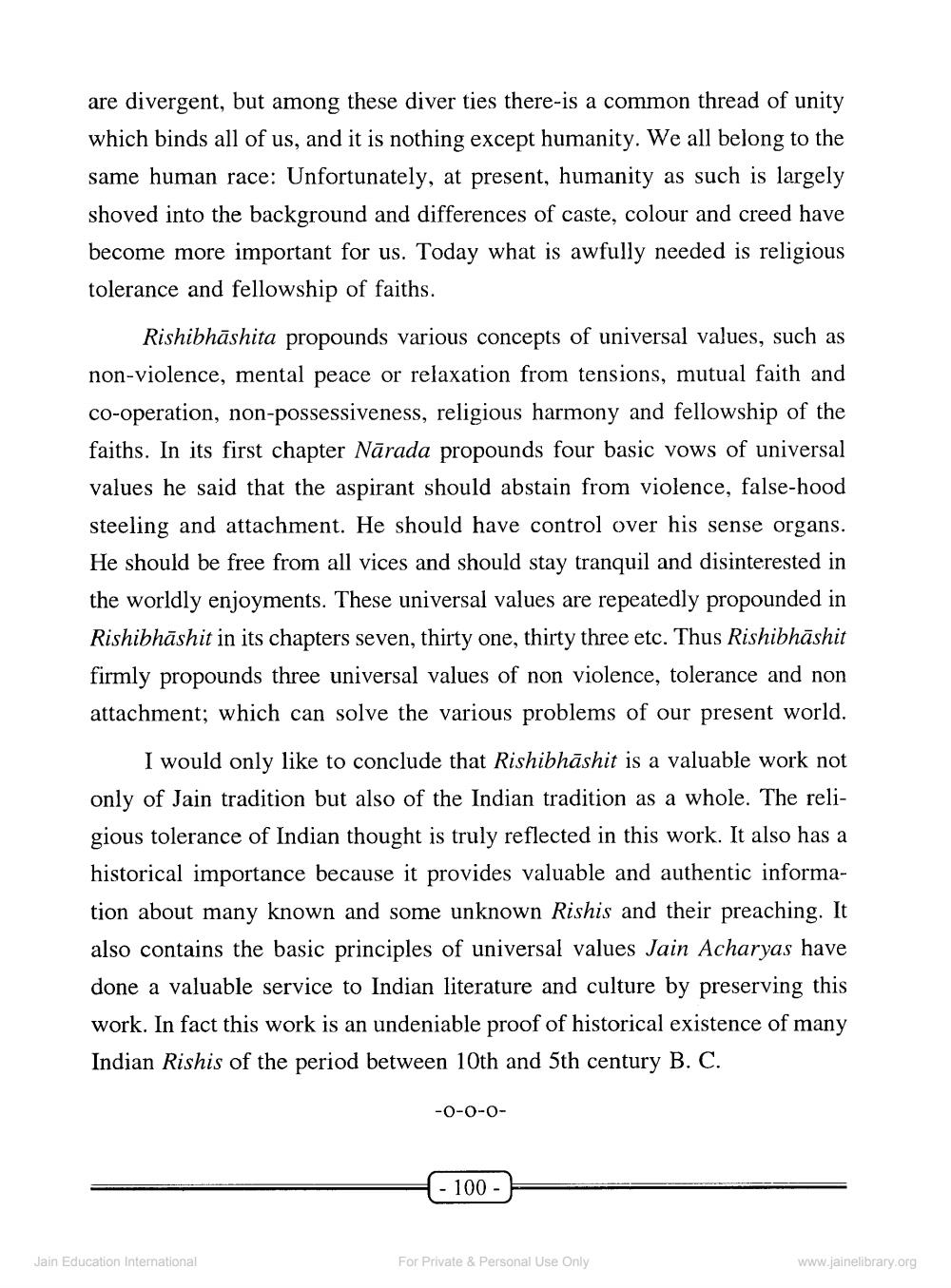________________
are divergent, but among these diver ties there is a common thread of unity
which binds all of us, and it is nothing except humanity. We all belong to the same human race: Unfortunately, at present, humanity as such is largely shoved into the background and differences of caste, colour and creed have become more important for us. Today what is awfully needed is religious tolerance and fellowship of faiths.
Rishibhāshita propounds various concepts of universal values, such as non-violence, mental peace or relaxation from tensions, mutual faith and co-operation, non-possessiveness, religious harmony and fellowship of the faiths. In its first chapter Nārada propounds four basic vows of universal values he said that the aspirant should abstain from violence, false-hood steeling and attachment. He should have control over his sense organs. He should be free from all vices and should stay tranquil and disinterested in the worldly enjoyments. These universal values are repeatedly propounded in Rishibhāshit in its chapters seven, thirty one, thirty three etc. Thus Rishibhāshit firmly propounds three universal values of non violence, tolerance and non attachment; which can solve the various problems of our present world.
I would only like to conclude that Rishibhāshit is a valuable work not only of Jain tradition but also of the Indian tradition as a whole. The religious tolerance of Indian thought is truly reflected in this work. It also has a historical importance because it provides valuable and authentic information about many known and some unknown Rishis and their preaching. It also contains the basic principles of universal values Jain Acharyas have done a valuable service to Indian literature and culture by preserving this work. In fact this work is an undeniable proof of historical existence of many Indian Rishis of the period between 10th and 5th century B. C.
-0-0-0
- 100 -
Jain Education International
For Private & Personal Use Only
www.jainelibrary.org




